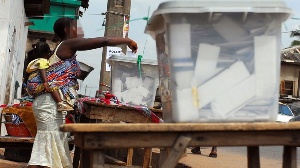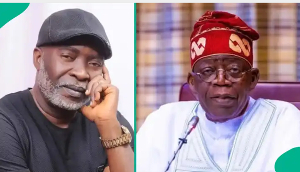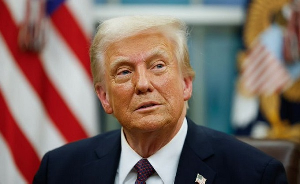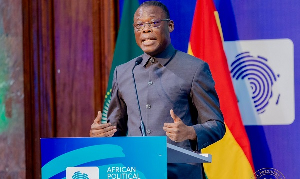Research by the International Republican Institute (IRI) on females’ participation in politics in Ghana has shown that most women refuse to contest political positions for fear of being insulted and tagged as prostitutes.
Mrs Hellen Muchunu of IRI, presenting the findings on Friday in Accra, noted that some respondents said negative societal perceptions about women politicians often discouraged them from actively engaging in political party activities.
The findings were based on responses from focus group discussions and individual interviews with women in politics, including members of the National Democratic Congress (NDC) and the New Patriotic Party (NPP) from Accra, Kumasi, and Tamale.
Mrs Muchunu said the findings also revealed that there appeared to be higher ethical and moral bar for women than men in the way they are expected to conduct themselves in society to earn respect or qualify for political party leadership.
She said another reason that prevented women from getting involved in active politics in Ghana is the security risk to the lives of participants and their families. She explained that some respondents who actively engaged in politics emphasised that the threat is greater internally and within party rivals, thereby deterring others from seeking to engage in politics.
“The security risk is there, I tell you. I don’t drive at night, and I don’t take the same route apart from the main road because you will never know who was monitoring you; who wants to know what time you come home, so you need to know how to protect yourself.
“If you want to go into politics and you are a serious politician, you should know how to shoot. And you should have your own gun to use it to protect yourself. You should be alert. If you sit in a group of people, your eyes should be going around because you don’t have a personal security to guard you like the presidents,” a respondent said. Mrs Muchunu mentioned the lack of support from husbands, finance and religious teachings as other factors that discouraged women from engaging in active politics in the country.
A respondent from Tamale, during the research, said: “I think as a Muslim woman, let me use myself as an example, we have not been encouraged to be with a party leadership because, in our religion, a woman doesn’t have to lead men.
“So for that matter, if you have the courage to do it, they will discourage you because as a woman you must be with your husband and take care of your children. Most of the women in politics flirt with men so because of that I had to ask for a divorce.”
Madam Comfort Asare, Director of the Department of Gender, Ministry of Gender, Children and Social Protection, said the findings of the study were timely since political parties have started organising primaries to elect leaders for the 2020 general elections, and encouraged many women to take an active part in it.
She said the ministry was working on the Affirmative Law to ensure that there is a 40 per cent mandatory representation of women in all decision-making activities, including boards of directors, committees, and political appointments, as well as that of private bodies.
Ms Linda Ocloo, Member of Parliament for Shai Osudoku, sharing her experiences, said many people tried to discourage her, but she gathered courage and, together with her team, fought to win the 2016 general elections after her husband, who was also a candidate, died through a motor accident. She said: “Can’t we women mobilise funds to contest and win elections unless we sell our bodies? I mean some of these issues are very disturbing.”
She recommended that political parties establish and create forums for women to lobby on issues of national interest. Ms Ocloo also urged public and private institutions to support the election of women candidates into office for them to contribute to national development.
Politics of Tuesday, 21 August 2018
Source: thefinderonline.com













